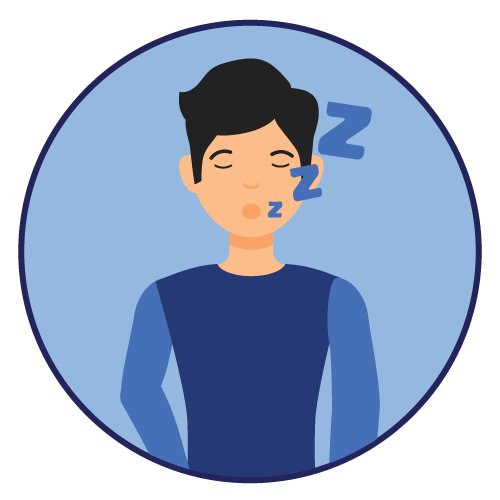| Name | Desvenlafaxine |
| Classes |
Central Nervous System Agent Psychotherapeutic Agent Serotonin Norepinephrine Reuptake Inhibitor (SNRI) |
| Diseases |
Angry Depression Fatigue Frustration Hopelessness Irritability Mental Disorder Tearfulness |
Desvenlafaxine
Desvenlafaxine belongs to a class of drugs called the Serotonin-Norepinephrine Reuptake Inhibitors. These medications inhibit the reuptake of serotonin and norepinephrine increase their activity.
Desvenlafaxine indicated for the treatment of:
- Major Depressive Disorder (MDD)
- Generalized Anxiety Disorder (GAD)
- Social Anxiety Disorder (SAD)
- Panic Disorder (PD)
- Recommended dose: 50 mg once daily with or without food
- There was no evidence that doses greater than 50 mg/day confer any additional benefit
- When discontinuing treatment, gradual dose reduction is recommended whenever possible
- Tablets should be taken whole; do not divide, crush, chew, or dissolve
- Renal Impairment: The recommended dose in patients with moderate renal impairment is 50 mg/day. The recommended dose in patients with severe renal impairment and end-stage renal disease (ESRD) is 50 mg every other day. The dose should not be escalated in patients with moderate or severe renal impairment or ESRD
- Hepatic Impairment: Dose escalation above 100 mg/day is not recommended
Most common adverse reactions associated with the use of desvenlafaxine include-
- nausea
- dizziness
- insomnia
- hyperhidrosis
- constipation
- somnolence
- decreased appetite
- anxiety
- specific male sexual function disorders
- Clinical Worsening/Suicide Risk: Monitor for clinical worsening and suicide risk
- Serotonin Syndrome or Neuroleptic Malignant Syndrome (NMS)-like Reactions: Serotonin syndrome or NMS-like reactions have been reported with SSRIs and SNRIs. Discontinue desvenlafaxine and initiate supportive treatment
- Elevated Blood Pressure: Has occurred with desvenlafaxine. Hypertension should be controlled before initiating treatment. Monitor blood pressure regularly during treatment
- Abnormal Bleeding: desvenlafaxine may increase the risk of bleeding events. Patients should be cautioned about the risk of bleeding associated with the concomitant use of desvenlafaxine and NSAIDs, aspirin, or other drugs that affect coagulation
- Narrow-angle Glaucoma: Mydriasis has occurred with desvenlafaxine. Patients with raised intraocular pressure or those at risk of angle-closure glaucoma should be monitored
- Activation of Mania/Hypomania: Has occurred. Use cautiously in patients with Bipolar Disorder. Caution patients about the risk of activation of mania/hypomania
- Cardiovascular/Cerebrovascular Disease: Use cautiously in patients with cardiovascular or cerebrovascular disease
- Cholesterol and Triglyceride Elevation: Have occurred. Use cautiously in patients with lipid metabolism disorders. Consider monitoring serum cholesterol and triglyceride
- Discontinuation Symptoms: Have occurred. Taper the dose when possible and monitor for discontinuation symptoms
- Renal Impairment: Reduces the clearance of desvenlafaxine. Dosage adjustment is necessary in severe and ESRD. In moderate renal impairment, the dose should not exceed 50 mg/day
- Seizure: Can occur. Use cautiously in patients with seizure disorder
- Hyponatremia: Can occur in association with SIADH
- Drugs Containing Desvenlafaxine or Venlafaxine: Should not be used concomitantly with desvenlafaxine
- Interstitial Lung Disease and Eosinophilic Pneumonia can occur
Contraindication
- Contraindicated in patients hypersensitive to any component of the medication.
- Contraindicated in patients hypersensitive to-
-
- Concomitant use with MAOIs is contraindicated.
-
None known.
None known.
 Bangla
Bangla English
English






